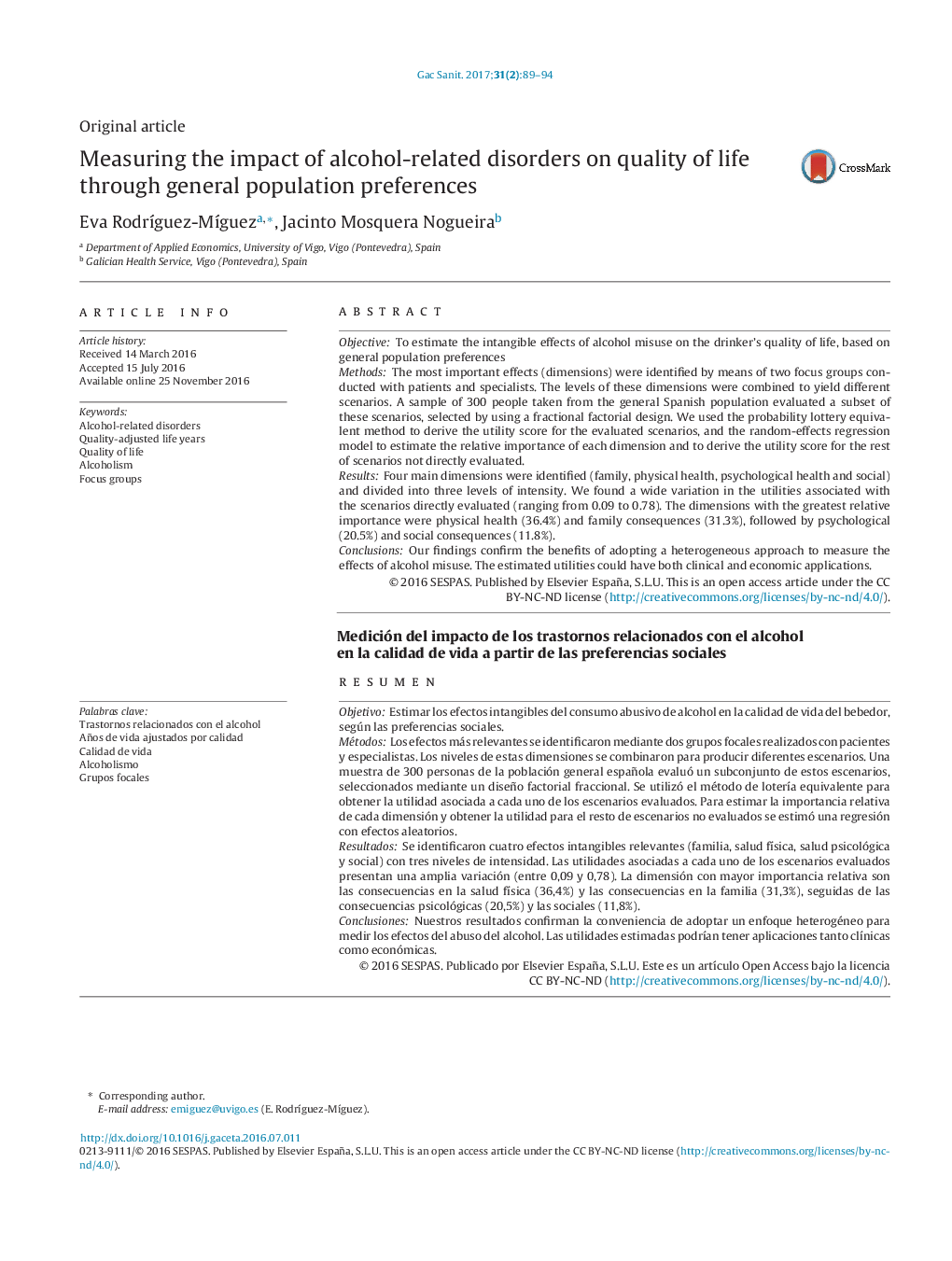| کد مقاله | کد نشریه | سال انتشار | مقاله انگلیسی | نسخه تمام متن |
|---|---|---|---|---|
| 5120549 | 1378254 | 2017 | 6 صفحه PDF | دانلود رایگان |
ObjectiveTo estimate the intangible effects of alcohol misuse on the drinker's quality of life, based on general population preferencesMethodsThe most important effects (dimensions) were identified by means of two focus groups conducted with patients and specialists. The levels of these dimensions were combined to yield different scenarios. A sample of 300 people taken from the general Spanish population evaluated a subset of these scenarios, selected by using a fractional factorial design. We used the probability lottery equivalent method to derive the utility score for the evaluated scenarios, and the random-effects regression model to estimate the relative importance of each dimension and to derive the utility score for the rest of scenarios not directly evaluated.ResultsFour main dimensions were identified (family, physical health, psychological health and social) and divided into three levels of intensity. We found a wide variation in the utilities associated with the scenarios directly evaluated (ranging from 0.09 to 0.78). The dimensions with the greatest relative importance were physical health (36.4%) and family consequences (31.3%), followed by psychological (20.5%) and social consequences (11.8%).ConclusionsOur findings confirm the benefits of adopting a heterogeneous approach to measure the effects of alcohol misuse. The estimated utilities could have both clinical and economic applications.
ResumenObjetivoEstimar los efectos intangibles del consumo abusivo de alcohol en la calidad de vida del bebedor, según las preferencias sociales.MétodosLos efectos más relevantes se identificaron mediante dos grupos focales realizados con pacientes y especialistas. Los niveles de estas dimensiones se combinaron para producir diferentes escenarios. Una muestra de 300 personas de la población general española evaluó un subconjunto de estos escenarios, seleccionados mediante un diseño factorial fraccional. Se utilizó el método de loterÃa equivalente para obtener la utilidad asociada a cada uno de los escenarios evaluados. Para estimar la importancia relativa de cada dimensión y obtener la utilidad para el resto de escenarios no evaluados se estimó una regresión con efectos aleatorios.ResultadosSe identificaron cuatro efectos intangibles relevantes (familia, salud fÃsica, salud psicológica y social) con tres niveles de intensidad. Las utilidades asociadas a cada uno de los escenarios evaluados presentan una amplia variación (entre 0,09 y 0,78). La dimensión con mayor importancia relativa son las consecuencias en la salud fÃsica (36,4%) y las consecuencias en la familia (31,3%), seguidas de las consecuencias psicológicas (20,5%) y las sociales (11,8%).ConclusionesNuestros resultados confirman la conveniencia de adoptar un enfoque heterogéneo para medir los efectos del abuso del alcohol. Las utilidades estimadas podrÃan tener aplicaciones tanto clÃnicas como económicas.
Journal: Gaceta Sanitaria - Volume 31, Issue 2, MarchâApril 2017, Pages 89-94
